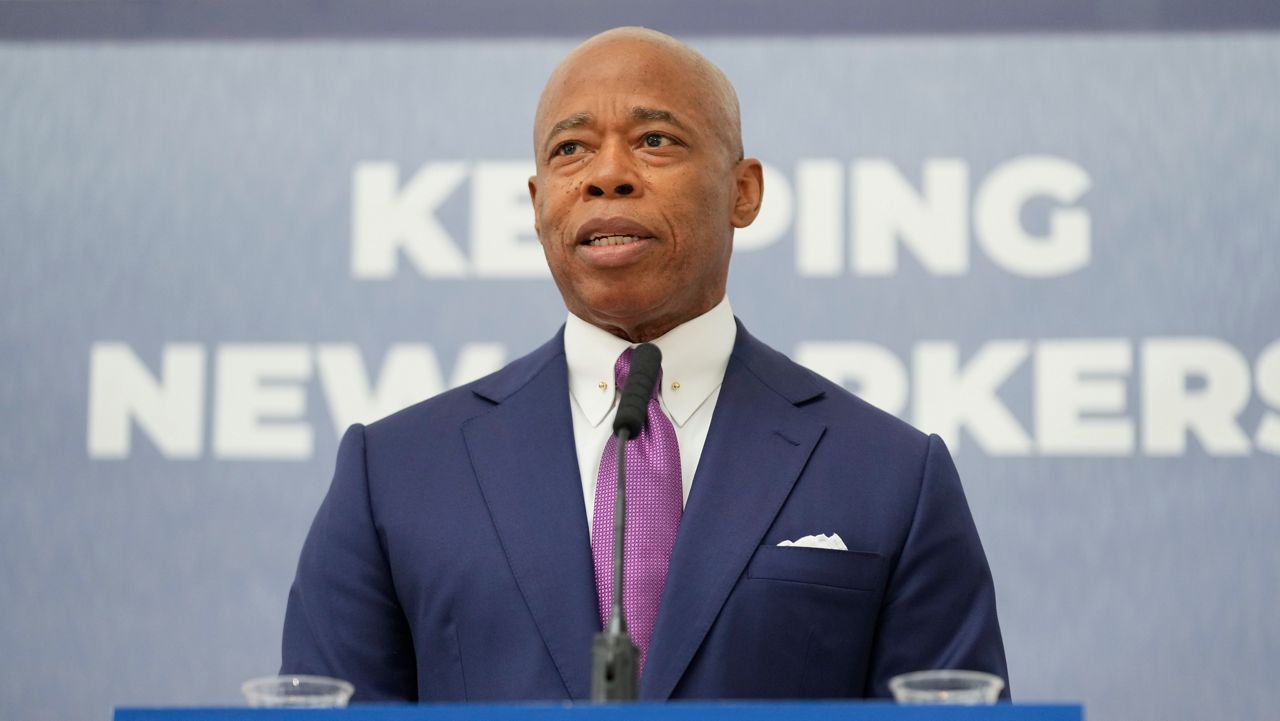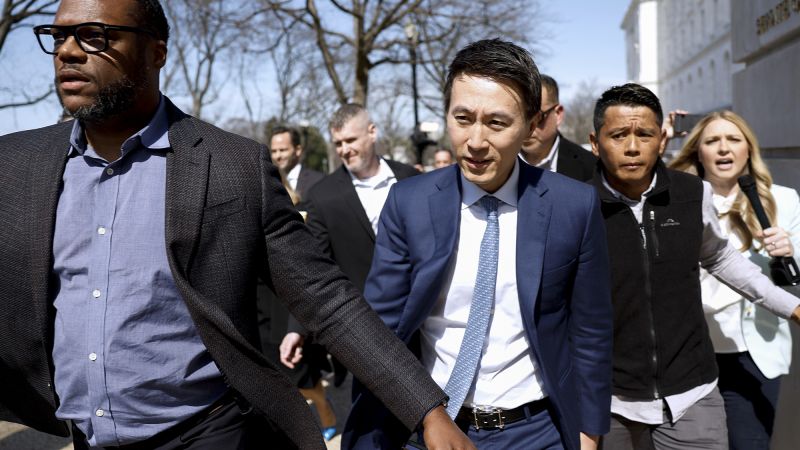CITY HALL — Following more than six weeks of bitter debate, delays and an about-face by Mayor Brandon Johnson on a controversial property tax hike, the City Council on Monday narrowly passed a $17.1 billion budget for 2025.
Alderpeople voted 27-23 on the main budget ordinance around 5 p.m. Monday, ensuring its passage.
In the end, the city’s property tax levy was not raised at all — a dramatic change from Johnson’s original proposal to increase it by $300 million, which was unanimously rejected by alderpeople in mid-November.
Johnson then floated a potential $150 million property tax hike before reducing it further to $68.5 million. The Mayor’s Office repeatedly argued the increase was necessary to avoid mass layoffs at the police and fire departments as well as cuts to other vital city services.
While the $68.5 million proposal and a slew of other fees and taxes did make it through the necessary City Council committees last week, a potential final vote on Friday was called off when it became clear the budget did not have the support to pass.
The vote was then pushed to Monday afternoon, while over the weekend Johnson’s budget team briefed alderpeople on a new plan that scrapped a property tax hike entirely.
Instead, the budget will fill that hole by refinancing payments on $40 million in debt tied to the Michael Reese hospital site in Bronzeville and saving $2.8 million by cutting middle management jobs across city departments, according to materials distributed to alderpeople on Sunday.
Other revenue will come from cutting 10 positions in the Mayor’s Office to save $1 million as well as hopefully bringing in $10 million by forcing organizers of large events to help reimburse the cost of police overtime, according to WTTW.

Despite the last-minute changes and elimination of the property tax hike, the budget proposal still features numerous fee and tax increases that will impact the daily lives of Chicagoans.
That includes a three-cent increase in the checkout bag tax from 7 cents to 10 cents, as well as a $5 price hike for residential parking permits for neighbors under 65 and the expansion of congestion fees for rideshare trips Downtown.
A tax on streaming services will also go up 1.25 percent. The city’s personal property lease tax, which impacts car and equipment rentals as well as cloud computing services, will increase from 9 to 11 percent. That hike would yield $128 million, according to the Tribune.
The budget also relies on a 3.25 percent increase on taxes paid by valet parking and parking garage businesses as well as the doubling of a license fee from $660 to $1,320 to establish a “wholesale food establishment,” among other increases. Just over $11 million in additional revenue is projected from adding more speed cameras, according to the Sun-Times.
The mayor’s spending plan taps into a “record” $570 million surplus of tax increment financing dollars. That will send $131 million to the city, around $300 million to Chicago Public Schools and the rest split between taxing bodies like the Chicago Park District, City Colleges and others.
The City Council had until Dec. 31 to pass a balanced budget or face a potential government shutdown, something that looked increasingly likely as a final budget vote was repeatedly pushed back.
But while the budget did finally pass on Monday, many alderpeople — even those who voted in favor — remained critical of both the final spending plan as well as the extended and often contentious negotiations overseen by the Mayor’s Office this fall.

Ald. Maria Hadden (49th), who was a “yes” vote, nevertheless had harsh words for Johnson over how he approached negotiating his spending plan — which was passed a month later than last year’s with last-minute add-ons to win support.
“How we do things is just as important as what we do, and the way you’ve led this process has left the City Council fractured … As we enter the next year with the promise of attacks from a new presidential administration, we are not prepared, and the fault lies squarely with you and your administration,” she said.
“This budget may have some progressive outcomes, but the process to get here was anything but progressive,” Hadden said.
Several alderpeople, including Alds. Byron Sigcho Lopez (25th), Jessie Fuentes (26th) and Daniel La Spata (1st), did offer praise for the budget, especially the compromises made to eliminate the property tax hike and cut vacant positions.
Ald. Carlos Ramirez-Rosa (35th) pointed to a $272 million advanced pension payment and a 3 percent cut of vacant positions across city departments as proof that the final budget was “fiscally responsible.”
“This budget … will deliver zero [increases to] property taxes, will deliver the things that our residents need,” he said. “[It] will help make sure that youth have summer opportunities, will make sure that people have affordable and accessible mental health care.”

Numerous alderpeople who voted against the budget plan warned that next year’s process would likely be just as difficult at this year’s — if not worse.
“I wanted to see more structural stuff. And I’m very concerned that we don’t have a stronger structural fix in this budget,” Ald. Nicole Lee (11th) told reporters before Monday’s meeting. “I worry about what the ratings agencies are going to say about us not having this.”
The Chinatown and Bridgeport alderperson, who voted “no” on the budget, urged Johnson to start next year’s budget process earlier than October, while describing this year’s process as “disorganized.”
“It’s been rough. I think it’s been rough on everybody, I think no one, from any perspective, will tell you otherwise, that this has somehow been an easy process,” Lee said.
Ald. Bill Conway (34th) also voted “no” and said he was not won over by the minimal amounts of cuts added over the weekend to the final budget plan — or the decision to refinance payments on the $40 million in debt for the Walter Reese site.
“In five years, the city budget has gone from about $11 billion to $17 billion, and that is not sustainable, and that’s something we need to be looking at,” he said. “Most of this budget is really being balanced with extra fees and taxes, and being balanced on the back of working families. And I don’t think that’s right. I think we can do much more in terms of finding efficiencies in this government.”

Conway and Lee were joined in their “no” votes by a coalition of 15 alderpeople who released a letter on Sunday calling for an additional $823 million in spending reductions in 2025.
The group is also advocating for additional funding to resume the use of gunshot detection technology ShotSpotter and fund a new Southwest Side police station, among other priorities.
Ald. Marty Quinn (13th), who signed the letter, called out Johnson for not supporting the new police station, which could be located at a vacant National Guard armory near Midway Airport in his ward that the state of Illinois has agreed to sell to the city for $1.
The Johnson administration has so far refused to consider using the building as a police station.
“I cannot support this budget because the residents of the 13th Ward feel we are working against them,” Quinn said during formal comments before the budget vote. “Mr. Mayor: Southwest Side residents cannot keep waiting for an answer as to why this critical project is not included in this budget.”

One sticking point that emerged late in this year’s budget negotiations was over a pilot program known as Plow the Sidewalks that aims to use city dollars to clear sidewalks of snow in select areas across the city.
La Spata vowed earlier this month that he would not vote for any spending plan that did not include $1 million to launch the program in 2025. Transportation and disability rights groups have pushed for the pilot for years, and a working group released a report in May recommending four pilot zones for the sidewalk-clearing operation.
But the program has drawn the ire of Ald. Nicholas Sposato (38th), who refused to vote for any budget that funded it. Until Monday, it wasn’t clear if the final budget would pay for the plan.
At the last minute, $500,000 was allocated for the program, although a City Council vote will still be required to determine the parameters of the pilot’s future, which was part of the original ordinance, La Spata said.
That apparently was enough to convince Sposato, who voted in favor of the overall budget.
La Spata said the Plow the Sidewalks program will begin in December 2025, and that the city will seek grants and philanthropic funding to supplement the $500,000.
After the vote, Johnson thanked the alderpeople who helped get the budget “over the finish line” and touted its funding of mental health resources, summer jobs for kids and other programs.
“While this budget process may have been different than the past, it has truly been a collaborative process, that included unprecedented levels of input not just from city council members but from the people of this city,” Johnson said.
In his post-council press conference, Johnson repeatedly pledged to work with state lawmakers next year to identify “progressive” revenue streams that could bring Chicago more money, including a graduated income tax that would tax wealthier residents at higher rates than others.
A 2020 proposal to do just that, known as the “Fair Tax” that was backed by Gov. JB Pritzker and other supporters, was ultimately voted down in 2020 during a statewide referendum.
“One of the things that we do have to just be very clear about is that the ultra rich in this in this city, state and country, have to pay their fair share in taxes,” Johnson said. “There are a number of ideas that are out there that would challenge the ultra rich to pay their fair share.”
Get a free print!
Help us reach our goal of 900 subscribers by Dec. 31 to sustain and expand our coverage and you’ll get a free neighborhood print. There are three ways to qualify: Purchase a new subscription, upgrade your current subscription or gift a subscription. Don’t wait — support Block Club and we’ll send you a print of your choice!
Listen to the Block Club Chicago podcast:




